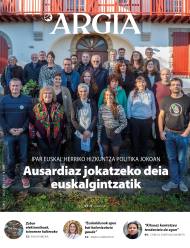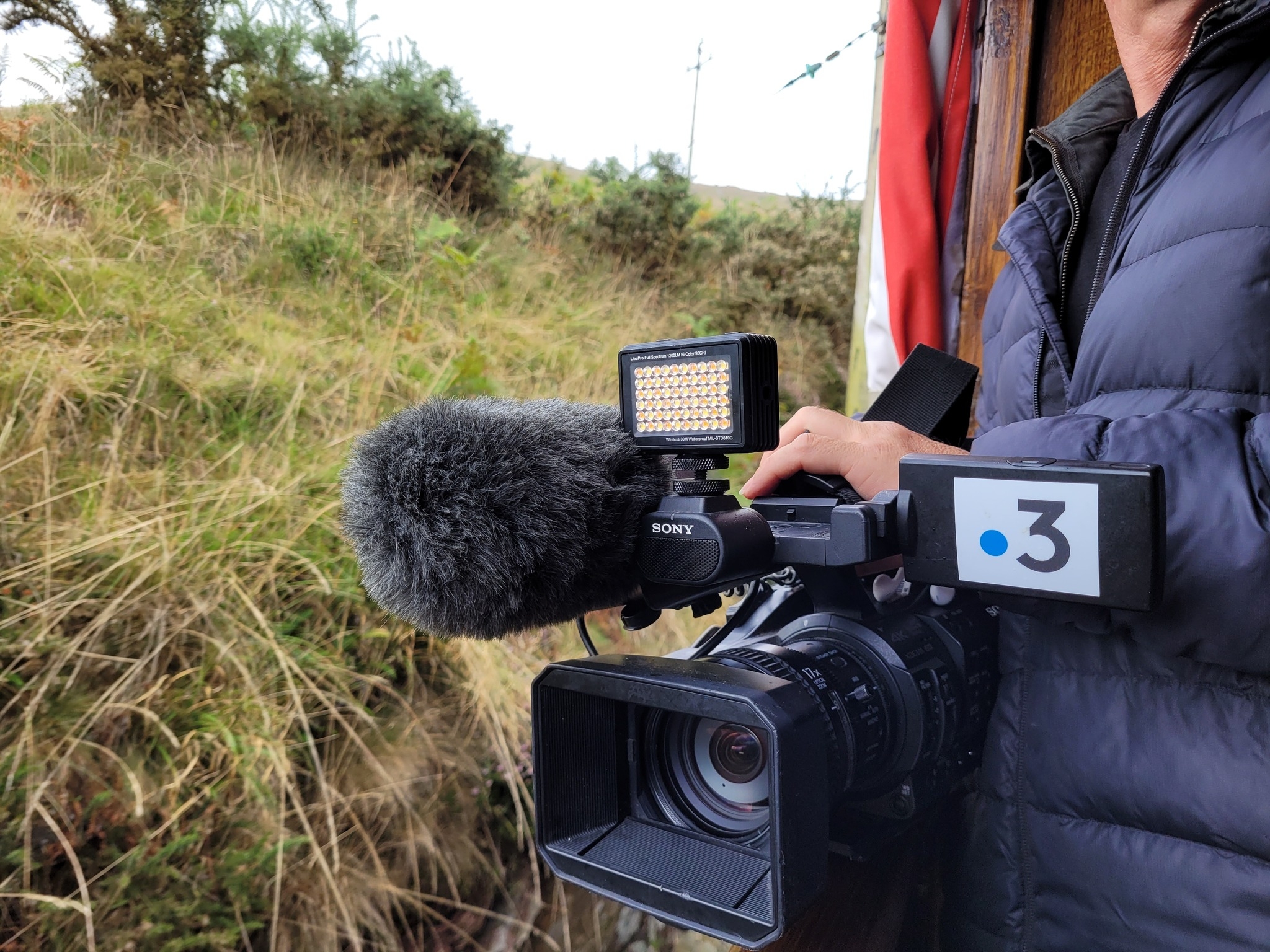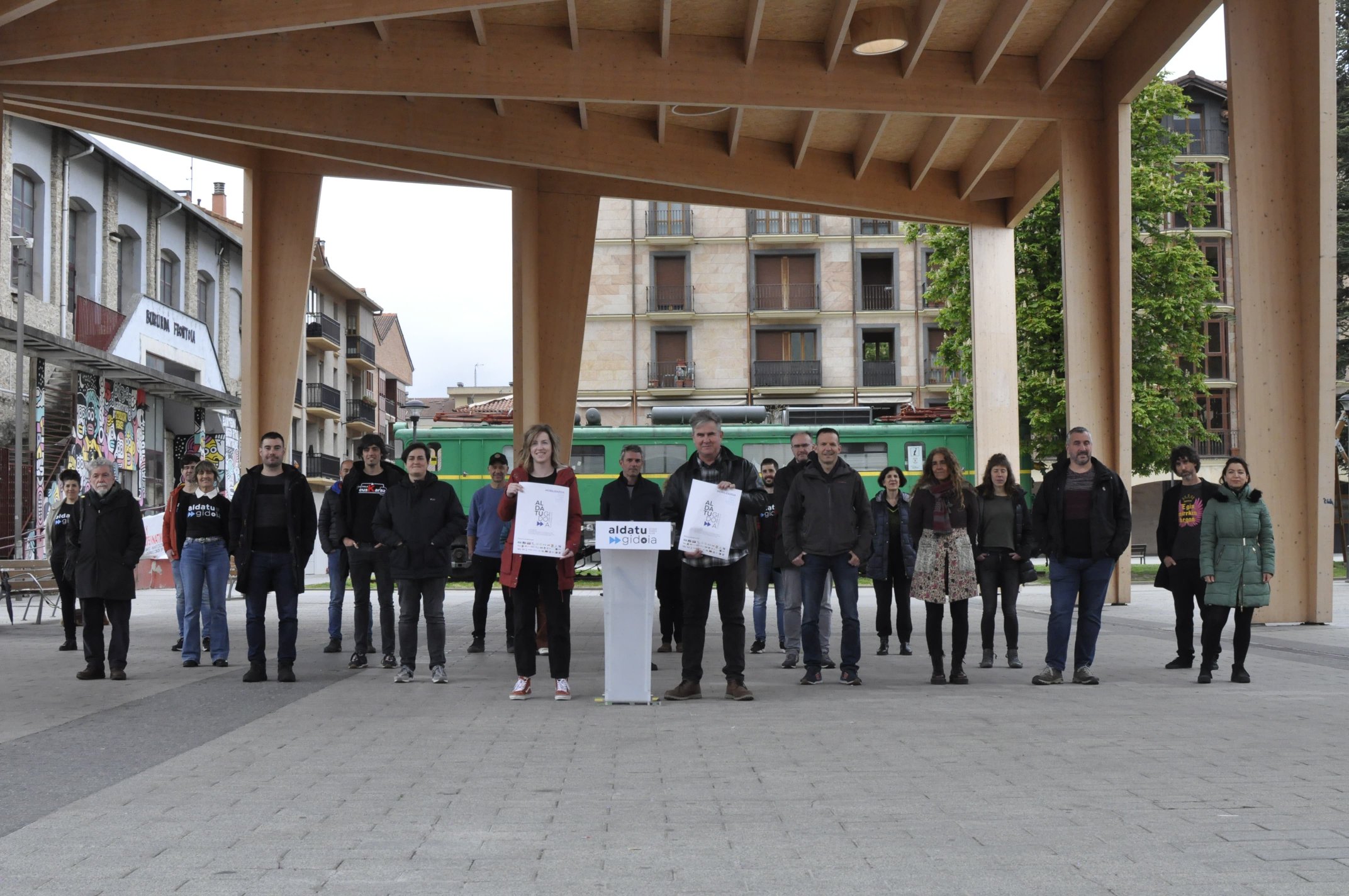"We must know how to maintain commitment in journalism without losing professionalism"
- Xabier Sanchez Erauskin. Life of a rebel with. The life of a rebel with causes) is the book written by Joxe Felix Azurmendi (Durango, 1941), former director of the newspapers Egin eta Deia. In the book, in the following lines, and between lines, there are essential testimonies of an era and of a People.
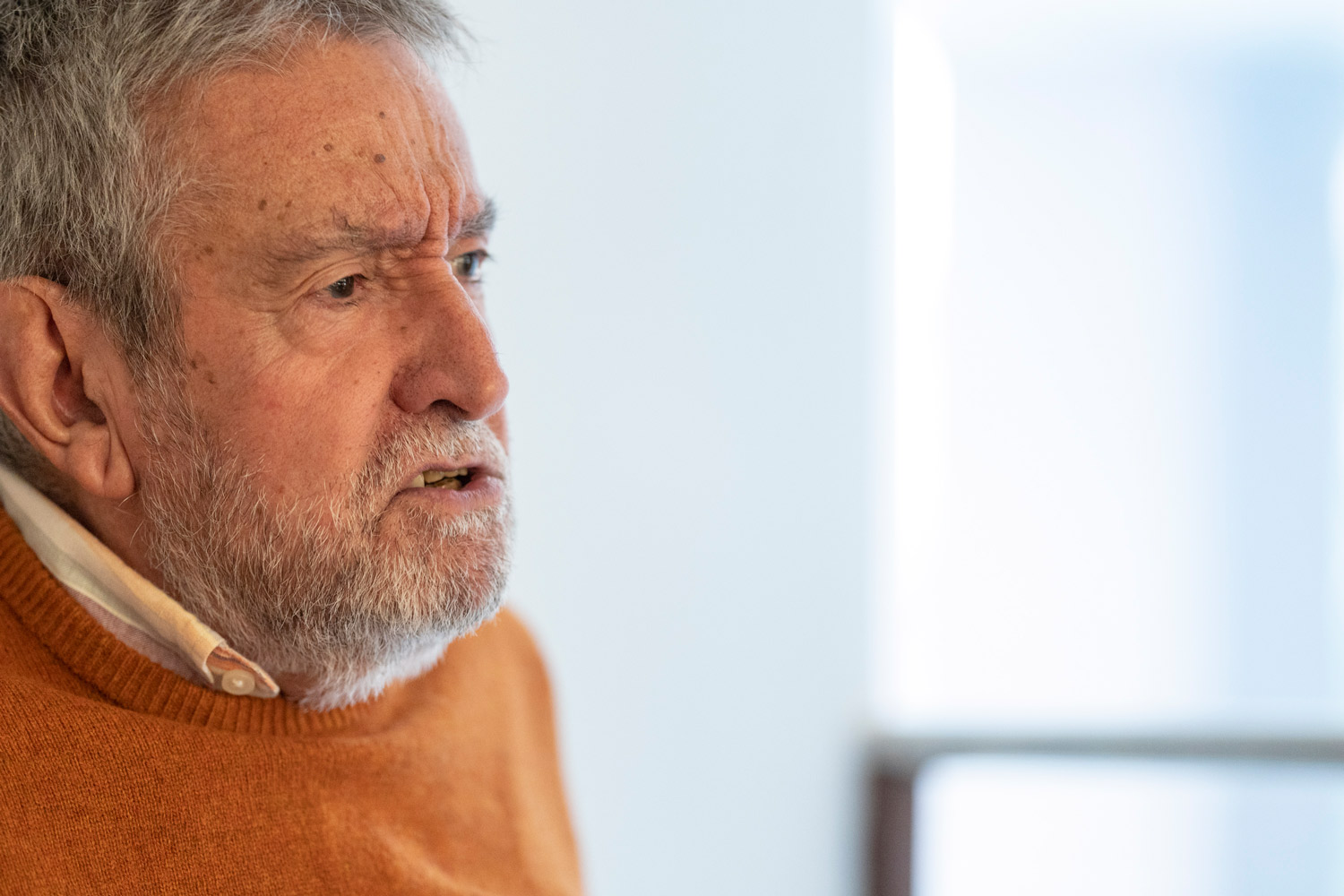
It's a simple cold morning from Vitoria. We met at the new bus station. Joxe Felix Azurmendi Vitoria-Gasteiz is common, but does not know this new neighborhood. "It's cold, but not for time, it's cold," he says. "Yes, in recent years they have made many new neighborhoods in Gasteiz." Although he hardly neglects his journalistic spirit, he himself starts asking me, at the end we have found a way to talk about his friend Xabier Sánchez Erauskin. We've entered the tempering bar and we've started talking.
What is Xabier Sánchez Erauskin for you?
For me it has been a friend, a kind of view, both professional and nationalist. The two of us have been quite engaged from a very young age.
I met as the director of the newspaper Egin; Xabier was still publishing books, some semiclandestals, others totally clandestine. Eginera came with an editor. With a big bitch and two cameras hanging and a recorder -- so I met her. A year later, or two years later, he came to the Hernani building as director of Punta y Hora magazine. And since then we were together. Shortly afterwards he was incarcerated. I also talk about staying in jail in the book. After leaving prison he came to Egin, in my place.
At that time, moreover, it was installed next to my parents' house and we had a very close relationship. And we're still there. Every Sunday not to the Mass, I will visit it. Before I got sick, I said, "Don't get down, because if you don't, I can't talk about these things with whom."
And now, sick, he's written a book about him. Why do you think the book is important?
We've done it as a tribute, but not just that. I believe that his biography offers many doubts and many questions. He is an exemplary man to explain an era: What was being a priest? What was being compromised in the Transition?
"This is what Erauskin's police record says: ‘During his stay in Newfoundland he preached separatism’
Let's start at the beginning. Xabier is vitorian. What was Vitoria like at the time? You always hear that it was the city of the "priests and military", the right. But under that skin, was there more? Were there nationalist environments?
Yes, an important nationalist movement developed here. Vitoria's intellectual atmosphere tended to nationalism before the 1936 war. Qualitatively there were more nationalists than elsewhere, with well-known names. Then, during the war, there were a lot of shooting, a lot of exiles, a huge repression, a lot of post-war arrests ...
Javier was very aware of how Franco arrived at the inauguration of the monument dedicated to Francisco de Vitoria in 1946, and how that morning, like the rain, was a harsh handlebar of ikurriñas and resistance, and how the priests of his school tried to collect all those who were running and hastening. Then there were a lot of arrests.
She belongs to a famous Vitoria family, right?
Yes, they've been veterinarians, both their grandfather and their father. Five more brothers of his father were the priests, what that means in this country. That is, the men of the letters, the university students of the time. It was an Abertzale family of Vitoria condemned in Franco. His father got his permission to be a veterinarian for several years, shot some relatives ...
.jpg)
Life of a rebel with (Joxe Felix Azurmendi, Diputación Foral de Álava, 2023)
Sánchez Erauskin is also a man of letters, right? In that environment did he feed his taste for reading and writing?
Yes, her sister is a writer. However, in that environment, he has always been quite heterodox.
Does the intellectual word define Erauskin well?
Yes, and they forget.
Where did you study?
He studied priest, but not anywhere, but in Comillas, in an elite school, to be an elite man. There he became interested in the new Theology and focused on the ideas of the left priests. He says that in Comillas the Basque seminarians met to play and there he met the Basques of the sea. For the sons of the captains, of the sailors... entered the Basque environment (then he began studying Basque) and that environment is behind the decision to go to Newfoundland. Because he didn't want to go to South America or Africa ... Newfoundland, but. Your stay in Saint-Pierre and Mikelun. There it was mainly related to the Galicians. This is what his police record says: "During his stay in Newfoundland he preached separatism." It was a very important time in his life.
In Newfoundland, as well as a priest, he collaborated in a magazine. Did you start writing there?
He has always written it. He's a writer. As a child, he writes to dieters. No one has yet opened them and they will have to be analysed at some point. Writing and doing sport have been your great hobbies.
Then he did the journalism race, right?
He studied Theology and Philosophy and dedicated himself to journalism because he had to run the magazine Los hombres del mar (Men of the Sea); yet, by a law of Manuel Fraga, he needed the title of journalist as director.Siempre has been a committed man and a very demanding professional.
"Eitb's people think investing in Basque is investing in the Basque left."
His book is called Life of a Rebel with. Txema Ramírez de la Piscina, in an article, names Sánchez Erauskin "journalist of the trench"... How about a trench for journalism?
We must be able to maintain commitment without losing professionalism. Because if the reader sees you're very abertzale, but a bad professional...
When I was director of Egin, German journalists came to visit our site and asked me: "What's the most important thing for a newspaper for you? and I say, "Go out then." And they were surprised. Of course. Our newspaper was distributed along with other newspapers, and if it was not accompanied by others at the time the dealer arrived, it could not be distributed.
I also told them: "Here we all work in harmony, almost all of us think of goals, but from an hour's time this is like a boat that has a captain, that doesn't support debates, and I have to be a captain. The next day, criticize whatever you want. But a newspaper that you have to take out every day cannot be an assembly, it needs someone to take charge.”
Did Xabier of Egin leave for lack of professionalism?
Xabier left Egin because he was not in agreement with the line he dominated. He made a rigorous criticism, saying that Egin was poorly politicized, because he abandoned journalistic logic, in his opinion, and also in my opinion.
"We were committed to smart politicization," he said.
It did not attach importance to the external aspect. But he always tried to maintain commitment and professionalism. It sold a lot, and it was a very important newspaper, not only because we were professionals from the left Abertzale, workers, women... We were young, sold well, and they were all happy, except the leaders of the Abertzale left.
It would be hard to leave Egin.
It was very hard, and it came out very angry. The National Bureau of the Public Union is also opposed to ... He said: "They're going to spoil a project that has no substitutes, and that's a luxury for us."
In a letter written in 1993 to a newspaper it read: "They don't accept criticism, let alone self-criticism..." Is there a lack of self-criticism in Euskal Herria?
Look, this has more to do with politics than journalism. Someday I write ... You know why the Abertzale left has not made self-criticism? Firstly, because there have been many changes. When ETA was dissolved there was no longer anyone who had walked at the beginning of the organisation, there was no continuity. So you can't intentionally make self-criticism. There is no doubt that I can say, “We wanted to do this, and then we would pass this, and then we took the wrong path...” And another reason for the lack of self-criticism is that some debates still cannot take place in public. But I'm sure, criticism and self-criticism have been private.
After leaving, he was a university professor. How does current journalism look?
Present-day journalism is completely different from what he has studied and taught in college. Not only ideologically, but also formally. Today we hardly buy newspapers... How and where is the news read today? A new way of reading and reporting is being created. I think there is a waste left, but it is also very difficult to control how people are informed. And it is curious, seeing what barbarities are called in the networks, at least in Euskal Herria the political results and society itself.
Why does PNV not go with PP? Because he knows that there's also a fairly progressive environment among voters. That looks like the Sahara, or Palestine -- and it's not from the Abertzale left, but it's in the environment. This is the opposite of what 90% of the media say and teach. What is it? That you don't see the media, that you don't hear? Or that citizens don't trust and know how to read the messages they get?
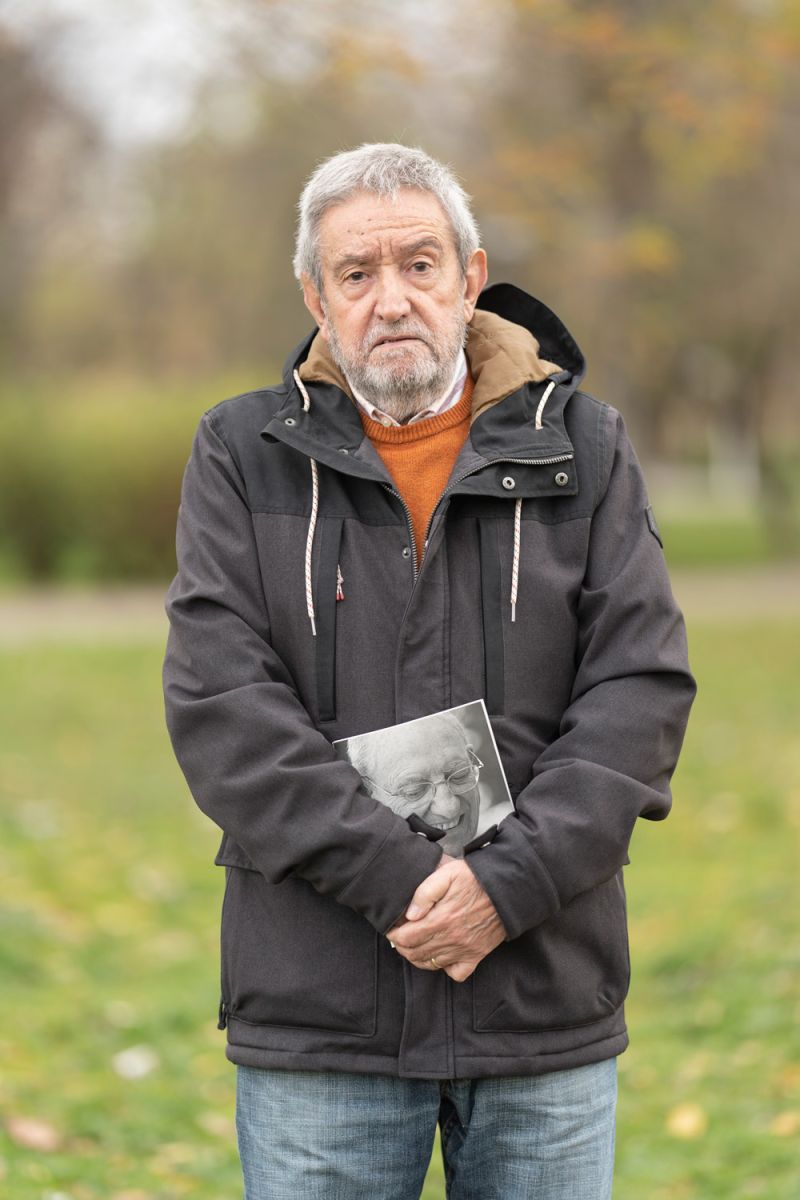
Does journalism have any peculiarity in Basque Country?
It's very curious. In the transition, it seemed that the most Francoist newspapers would fail and some would, but others remained strong. We all thought that, being this Abertzale Country, both Deia and Egin would have a lot of strength, but it has not. The leadership of El Correo Español with an editorial line similar to ABC... Euskadi is, I would say, the only place where citizens, when voting, do not follow the line of the media they usually read. The Abertzale press has very little force, less than expected, it does not know how to reach the majority. Nationalists have not managed their press. They did not want to understand that the role of a newspaper is not the party press.
As for the press in Basque, the explanation is another, of course that of language. But, for example, I would say that ARGIA kept some freedom in the toughest times of ETA. The pressures in the times of Pello Zubiria, but acted with great dignity -- and now also. We must all strive to make journalism worthy. And today, for me, Gara, Berria and ARGIA do decent journalism, but how many people do you read?
Concerning the audiovisual world: ETB1 almost nobody sees it. Because they know that the Basque or the Basques move in the world of the Basque left. The important contribution of ETA was to be progressive in a broad sense, and gave great importance to the Basque country, which has then been reflected in the Basque Left and in the Basque world. Eitb people think that investing in Euskera is investing in the Abertzale left.
What do young journalists have to learn from Erauskin?
How the profession is defended and loved and how to maintain the illusion. We have always looked for new things. That's what I mean: don't lose the illusion and keep your ideas, your dignity. Be a free person, even with the party you vote for.
The other day, as I was walking through the famous television series The Wire, there came a scene that reminded me of despair. There, the management of the newspaper The Baltimore Sun brought together the workers and alerted them to the changes that are coming, i.e. redundancies... [+]
France 3 Euskal Herri telebista katea apalduz doa. Kate horretako kazetari eta langileek jakin berri dute berriz ere programazio eta finantzaketa apaltze bat pairatuko dutela. Egun oroz, zazpi minutuko berriak eman izan dituzte, baina iragan udatik bi minutuz murriztu zieten... [+]
The presence of Elon Musk in the media advances like a rocket after landing in the garden of the White House. Other powers, apparently, have been altered by the power and influence it is acquiring, and to reduce its influence, have charged the X network. In recent weeks, media... [+]









